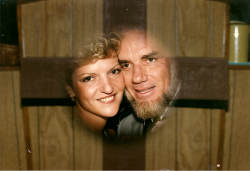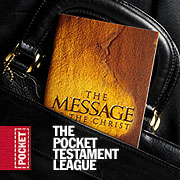Is not the cup of thanksgiving for which we give thanks a participation in the blood of Christ? And is not the bread that we break a participation in the body of Christ?
Thoughts for Today:The Greek word "koinonia" is used to describe participation in the Lord's Supper. This word is translated as "communion", which means "oneness". Paul uses the act of communion or oneness to illustrate that the physical elements we use are not the literal body and blood of Jesus; they are simply a representation of His sacrifice. When we eat and drink, we are communing with the Lord in His death and resurrection. These elements should stir strong emotion and thoughtful consideration.
In our previous passage, Paul appealed to the common sense of the Corinthians. In our passage today, Paul asks two rhetorical questions -- of which he expects affirmative answers. Why? I think it's to establish a greater sensitivity among the Corinthians regarding the subject of eating meat previously offered to idols. How so? Because in the same way that it would be insulting for an idolater to participate in communion with us, it offends the sensibilities of an idolater (or former idolater) to eat what was previously sacrificed to idols. Paul's point is -- although there is nothing technically wrong with the meat -- to the people who offer food to idols, there is real meaning behind its consumption. What message is sent when it is thoughtlessly consumed?
Questions to Ponder:How do you think the exercise of your Christian freedom reflects upon the Gospel? Does it trample on the rights, sensibilities or traditions of others? How would you respond if, in some way, a non-Christian dishonored our participation in the Lord's Supper? Do you politely respect the rights of others as you expect them to honor ours?





 RSS Feed
RSS Feed
